Did you know your kidneys filter around 50 gallons of blood every single day? These two bean-shaped organs work tirelessly to remove waste, regulate fluid balance, and maintain essential minerals in your body. Yet, many people overlook kidney health until problems arise. Modern lifestyles—high salt diets, dehydration, and processed foods—put extra strain on the kidneys, increasing the risk of stones and toxins building up. For centuries, traditional medicine has relied on simple herbs to support natural detoxification. One of the most powerful and accessible among them is parsley. Often seen only as a garnish on plates, parsley contains bioactive compounds, antioxidants, and natural diuretic properties that make it a valued kidney-supporting herb. In this article, we’ll explore why parsley has been used since ancient times for cleansing, how it works, practical recipes you can make at home, and real-life insights on using this ancient herbal infusion.
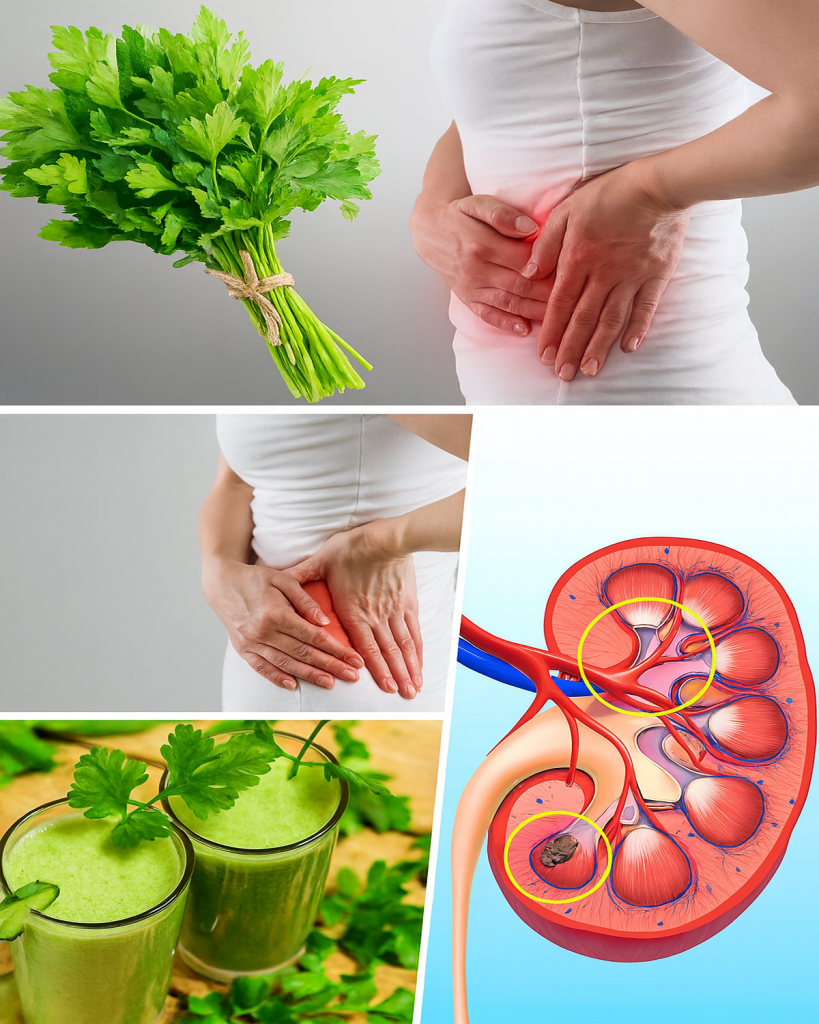
Why Parsley Has Been Used for Kidney Health
Nutritional Profile
Parsley is rich in:
- Vitamin C: Boosts immunity and antioxidant protection.
- Vitamin K: Supports bone health and circulation.
- Flavonoids and carotenoids: Natural antioxidants that help reduce oxidative stress.
- Apigenin and myristicin: Compounds with mild diuretic and detoxifying effects.
Traditional Uses
- In ancient Greece and Rome, parsley was used in teas and tonics for urinary tract health.
- Middle Eastern cultures brewed parsley water to relieve bloating and promote cleansing.
- Folk remedies often prescribed parsley for balancing fluids and easing kidney discomfort.
7 Benefits of Parsley Infusion for Kidney and Whole-Body Wellness
1. Gentle Kidney Cleanse
Parsley’s natural diuretic properties encourage urine production, helping flush toxins and reduce kidney workload.
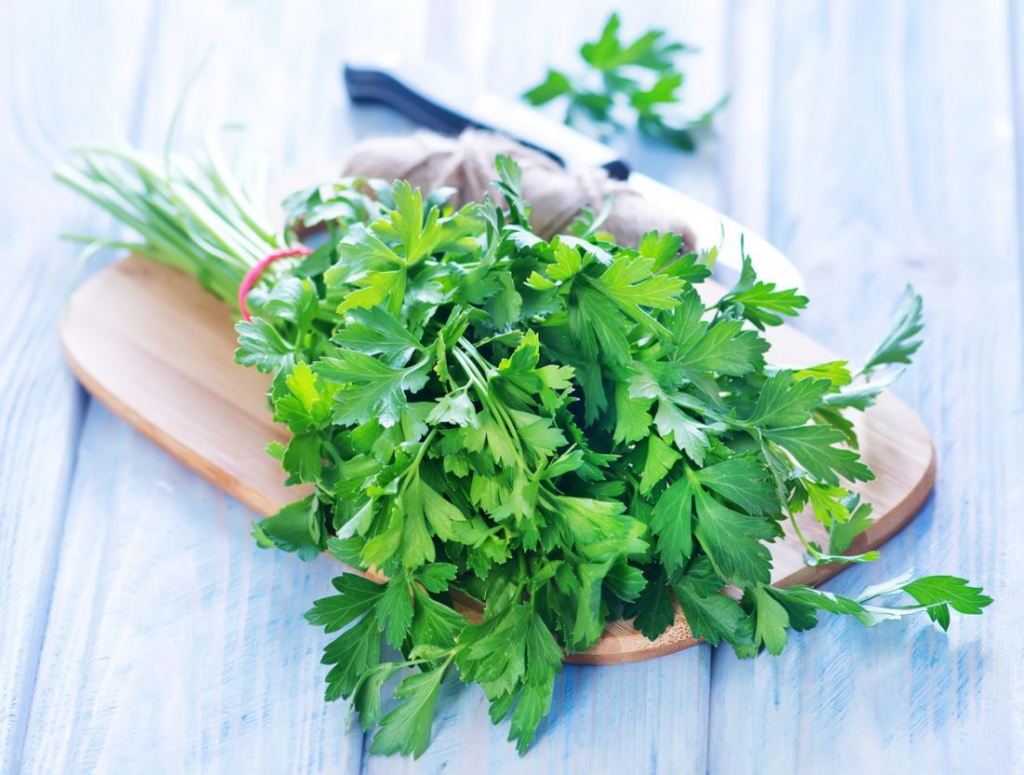
2. Supports Detoxification
By promoting fluid elimination, parsley may help clear waste from the body, including excess sodium.
3. Helps Prevent Kidney Stones
Compounds in parsley can help maintain balanced mineral levels, potentially lowering stone risk.
4. Reduces Bloating and Water Retention
Parsley infusion supports fluid balance, easing swelling in legs, feet, or hands caused by water retention.
5. Rich in Antioxidants
Protects kidney tissue from oxidative damage and supports overall cellular health.
6. Promotes Healthy Digestion
Drinking parsley water can soothe bloating and mild digestive discomfort.
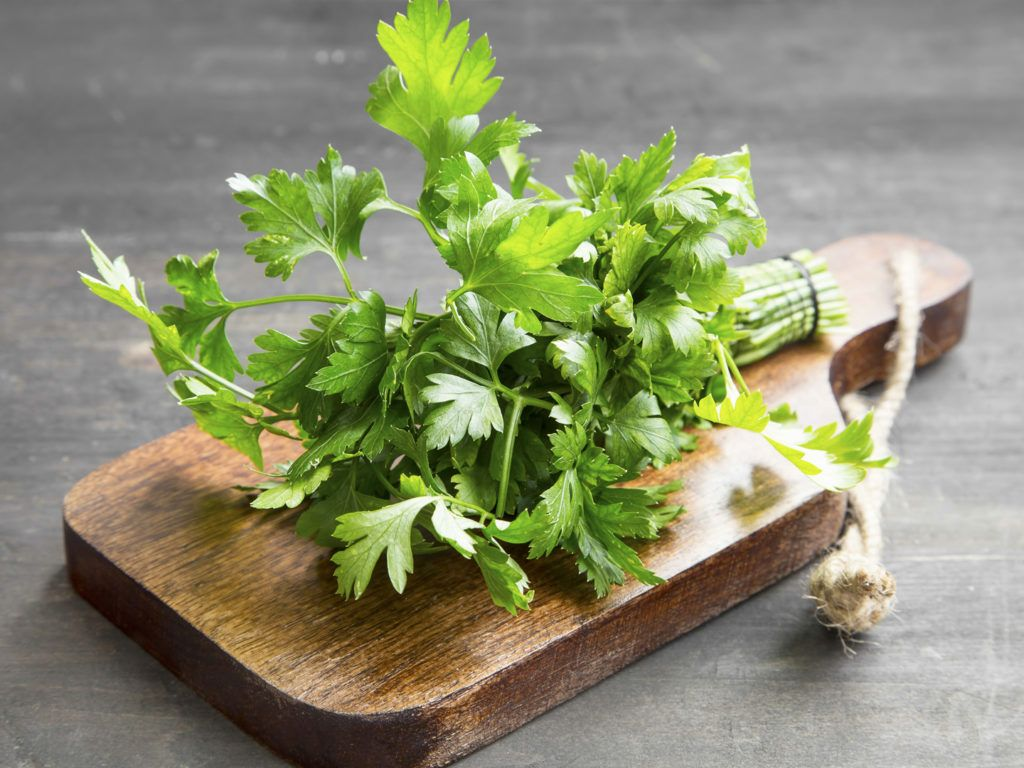
7. Affordable and Accessible
Parsley is inexpensive, widely available, and easy to prepare at home.
| Benefit | Parsley Component | Effect on the Body |
|---|---|---|
| Kidney cleansing | Apigenin, myristicin | Stimulates urine flow |
| Detoxification | Flavonoids, vitamin C | Reduces oxidative stress |
| Stone prevention | Mineral-balancing compounds | Helps reduce calcium buildup |
| Water balance | Natural diuretics | Reduces swelling, bloating |
How to Make Ancient Parsley Infusion

Basic Parsley Tea Recipe
Ingredients:
- 1 cup fresh parsley leaves (or 2 tablespoons dried parsley)
- 2 cups water
- Optional: ½ lemon and 1 teaspoon honey for taste
Instructions:
- Wash parsley thoroughly.
- Boil 2 cups of water in a pot.
- Add parsley leaves and simmer for 10 minutes.
- Strain into a cup and serve warm.
- Add lemon and honey if desired.
Tip: Drink 1 cup in the morning and 1 in the evening for 3–5 days as part of a natural cleanse.
Variations
- Parsley & Ginger Tea: Add fresh ginger slices for extra circulation and digestive support.
- Parsley & Lemon Water: Brew parsley tea and chill it with lemon slices for a refreshing detox drink.
- Parsley & Mint Infusion: Combine parsley with mint leaves for cooling effects and better digestion.
Real-Life Experiences
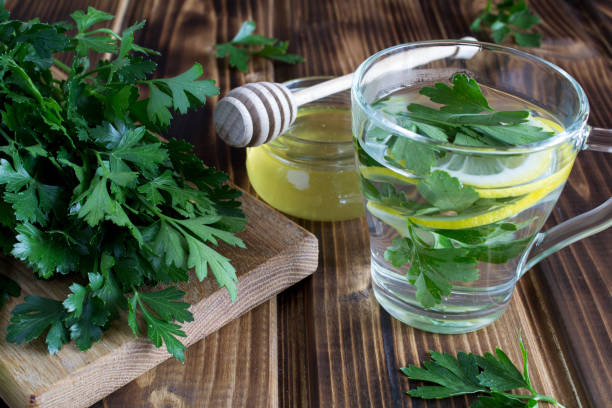
Case 1: The Traveler
Amir, 41, suffered from swelling in his feet after long flights. Drinking parsley tea for three days helped reduce water retention and left him feeling lighter.
Case 2: The Wellness Enthusiast
Clara, 29, included parsley infusion in her monthly detox routine. She noticed reduced bloating and more energy throughout the day.
Case 3: Traditional Use
In Mediterranean households, grandmothers often prepared parsley tea when family members felt sluggish or noticed early signs of kidney discomfort.
Tips for Best Results
- Always use fresh parsley for maximum potency.
- Stay hydrated; parsley infusion works best when combined with enough daily water intake.
- Combine with a balanced diet low in excess salt and processed foods.
- Use parsley in meals—salads, soups, and juices—to boost daily intake naturally.
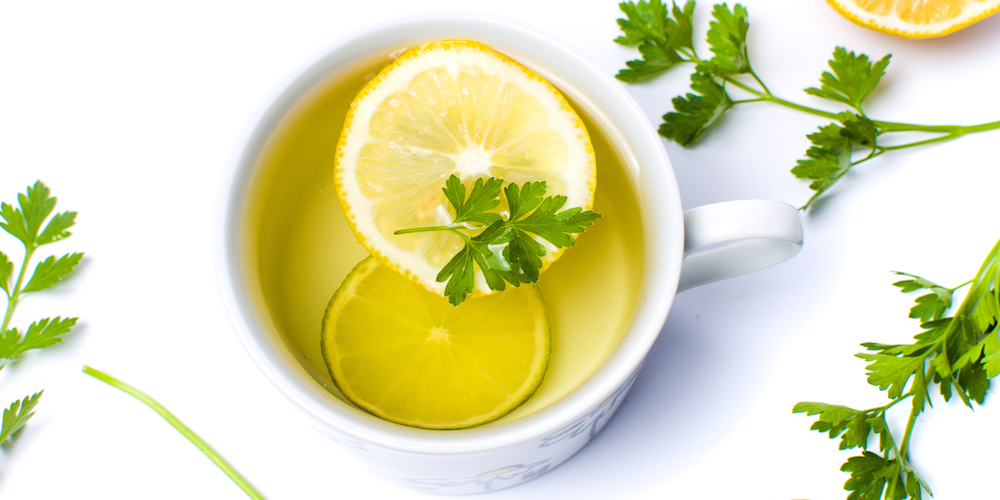
Safety and Precautions
- Parsley tea is safe in moderate amounts, but avoid overuse.
- Pregnant women should avoid large amounts of parsley, as it may stimulate uterine contractions.
- People with kidney disease or those on medication should consult a doctor before using parsley as a regular remedy.
Conclusion
Parsley is far more than a decorative herb—it’s an ancient ally for kidney health and natural detoxification. Simple, affordable, and effective, parsley infusion can help reduce bloating, support kidney cleansing, and promote overall vitality. When used wisely, this herbal remedy offers a gentle way to give your kidneys the care they deserve.
FAQs in brief
- Can parsley tea cure kidney disease? No, but it may support natural kidney function.
- How often should I drink it? 1–2 cups daily for a few days, not continuously long-term.
- Can I use dried parsley? Yes, though fresh parsley is more potent.
- Is it safe for everyone? Most healthy adults can enjoy it, but check with your doctor if you have chronic health issues.
Disclaimer: This article is for informational purposes only and is not a substitute for medical advice. Always consult a healthcare provider before beginning herbal remedies, especially if you have existing conditions or take medication.




